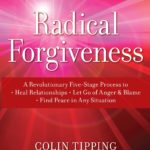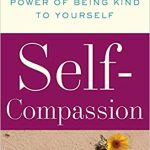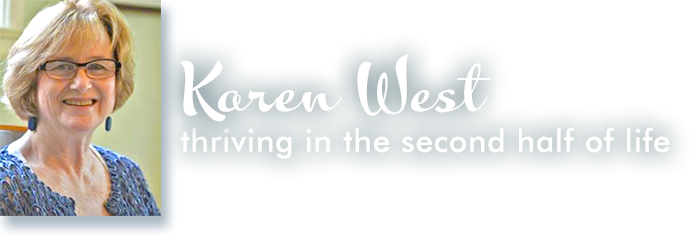 For the last three months, I have been writing about the topic of forgiveness, focusing mainly on the “Five Stages of Radical Forgiveness” as explained by Colin Tipping in his book Radical Forgiveness. One of the many advantages of Radical Forgiveness is that when you learn to go through this process, it will enable you to stop carrying around the excess baggage of resentment as we so often do. And Tipping even created a worksheet to help you go through the five stages. There is a copy of it on his website http://www.radicalforgiveness.com/free-tools/ Going through this process “helps people to shift their viewpoint and make new choices based on their insights.” (82) And Radical Forgiveness is about more than forgiving someone who has hurt you. Tipping calls it a “spiritual philosophy.” (82) This process will “jerk us into an awareness of what may be happening before we get drawn too deeply into a drama and go to Victimland.” It will bring us into the present, and “when we are in the present moment, we cannot feel resentment, because resentment only lives in the past. Neither can we feel fear, because fear only exists in relation to the future. We find ourselves, therefore, with the opportunity to be in present time and in the space of love, acceptance and Radical Forgiveness.” (232) And there are many more situations in our lives besides those involving forgiveness where we can get “drawn too deeply into a drama,” and if we can learn to stay conscious and aware, we can avoid getting stuck. Tipping doesn’t use the word, but what he is teaching us is to be more “mindful,” which I will write more about in the future.
For the last three months, I have been writing about the topic of forgiveness, focusing mainly on the “Five Stages of Radical Forgiveness” as explained by Colin Tipping in his book Radical Forgiveness. One of the many advantages of Radical Forgiveness is that when you learn to go through this process, it will enable you to stop carrying around the excess baggage of resentment as we so often do. And Tipping even created a worksheet to help you go through the five stages. There is a copy of it on his website http://www.radicalforgiveness.com/free-tools/ Going through this process “helps people to shift their viewpoint and make new choices based on their insights.” (82) And Radical Forgiveness is about more than forgiving someone who has hurt you. Tipping calls it a “spiritual philosophy.” (82) This process will “jerk us into an awareness of what may be happening before we get drawn too deeply into a drama and go to Victimland.” It will bring us into the present, and “when we are in the present moment, we cannot feel resentment, because resentment only lives in the past. Neither can we feel fear, because fear only exists in relation to the future. We find ourselves, therefore, with the opportunity to be in present time and in the space of love, acceptance and Radical Forgiveness.” (232) And there are many more situations in our lives besides those involving forgiveness where we can get “drawn too deeply into a drama,” and if we can learn to stay conscious and aware, we can avoid getting stuck. Tipping doesn’t use the word, but what he is teaching us is to be more “mindful,” which I will write more about in the future.
 Before we leave the topic of forgiveness, I want to tell you about another concept that I think will change your life. It is called “self-compassion.” Kristin Neff writes about it in her book Self-Compassion: Stop Beating Yourself Up and Leave InSecurity Behind. I was planning to write about self-forgiveness in my blog, because I think that forgiving ourselves is even more important and even more difficult than forgiving others, but I think that practicing self-compassion as Neff writes about it is even more life-changing than self-forgiveness.
Before we leave the topic of forgiveness, I want to tell you about another concept that I think will change your life. It is called “self-compassion.” Kristin Neff writes about it in her book Self-Compassion: Stop Beating Yourself Up and Leave InSecurity Behind. I was planning to write about self-forgiveness in my blog, because I think that forgiving ourselves is even more important and even more difficult than forgiving others, but I think that practicing self-compassion as Neff writes about it is even more life-changing than self-forgiveness.
Neff says she learned about self-compassion when she took her first Buddhism class. She writes, “I had known that Buddhists talk a lot about the importance of compassion, but I had never considered that having compassion for yourself might be as important as having compassion for others. From the Buddhist point of view, you have to care about yourself before you can really care about other people. If you are continually judging and criticizing yourself while trying to be kind to others, you are drawing artificial boundaries and distinctions that only lead to feelings of separation and isolation. This is the opposite of oneness, interconnection, and universal love—the ultimate goal of most spiritual paths, no matter what tradition.” (7) Then when she got a job as an assistant professor at the University of Texas at Austin, she decided to do research on self-compassion and to make it her life’s work.
What I think is most life-changing is that Neff says that we need to feel compassion for ourselves whenever we are suffering, even when we have done something “wrong,” when we think we deserve “punishment.” She says, “Compassion is not only relevant to those who are blameless victims, but also to those whose suffering stems from failures, personal weaknesses, or bad decisions. You know, the kind you and I make every day…Self-compassion requires that we stop to recognize our own suffering. ” (11) “If you’re angry at yourself for mistreating someone, or for making some stupid remark at a party—it’s even harder to see these as moments of suffering…We typically don’t recognize such moments as a type of pain that is worthy of a compassionate response. After all, I messed up, doesn’t that mean I should be punished? Well, do you punish your friends or your family when they mess up? Okay, maybe sometimes a little, but do you feel good about it? The truth is, everyone is worthy of compassion.” (10–11) More about self-compassion in my next blog entry.

